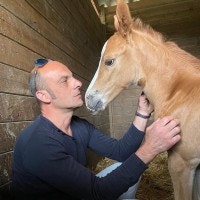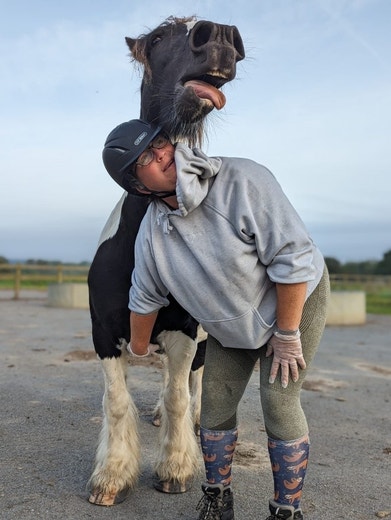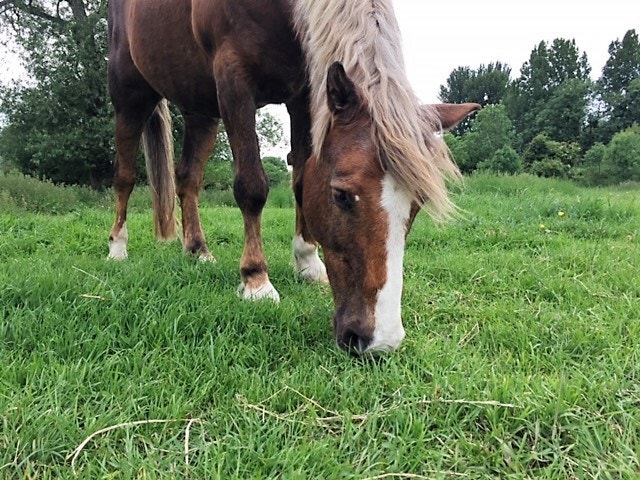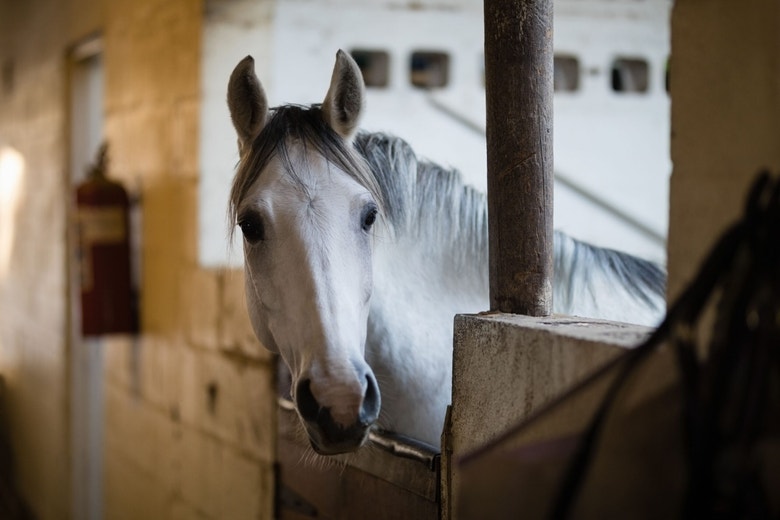SPILLERS Industry Equine Obesity Survey Results
SPILLERS is on a mission to end equine obesity in the UK by 2035.
As part of our ongoing mission to eradicate equine obesity in the UK by 2035, SPILLERS has conducted an extensive survey within the equine industry to better understand the challenges and opportunities in addressing this critical issue. With the participation of 642 professionals from various sectors, the results shed light on current practices, perceptions, and areas needing improvement in managing equine obesity.
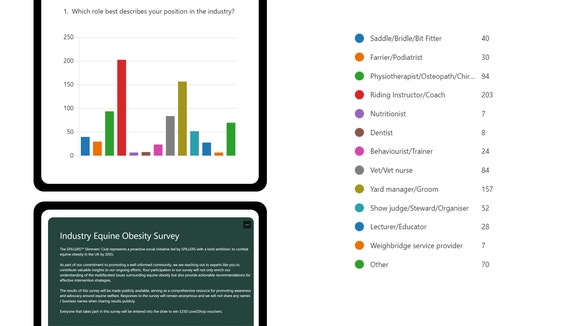
An overwhelming 83% of respondents reported encountering equine obesity at least ‘somewhat frequently’ or ‘very frequently’. Only 15% encountered it ‘occasionally’. This high frequency highlights the urgent need for effective interventions and strategies to tackle this growing problem.
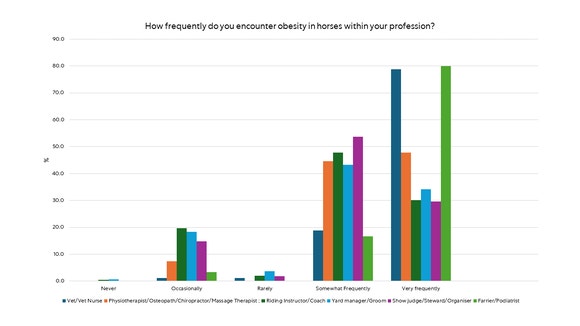
It’s encouraging to see that 73% of respondents are engaging in discussions with horse owners about obesity ‘somewhat frequently’ or ‘very frequently’. An additional 22% are addressing the issue ‘occasionally’. This proactive communication is crucial in promoting awareness and encouraging action among horse owners.
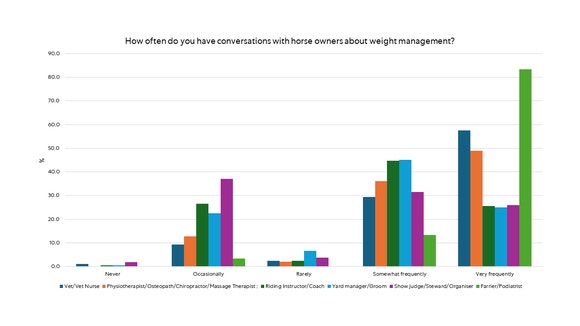
Despite the high frequency of encounters, there is a notable variation in confidence levels among professionals when discussing obesity. On average, less than one-third of respondents felt ‘very confident’ in these conversations. Worryingly, 40% of vets reported being ‘not confident at all’. This indicates a need for improved training and resources to boost confidence and efficacy in addressing obesity.
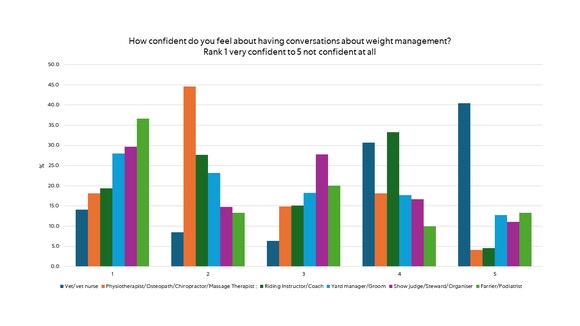
There is a strong consensus that obesity significantly affects the wellbeing of horses, with 81% agreeing on its substantial impact. This underscores the importance of tackling obesity for the overall health and quality of life of horses and ponies.
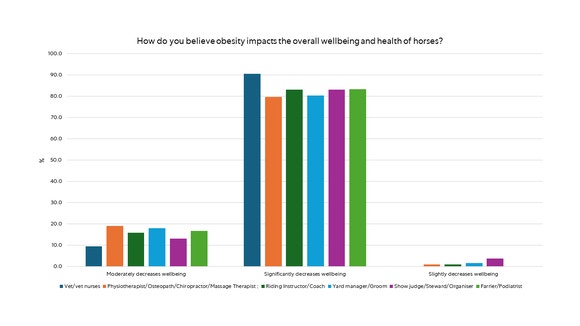
A significant 83% of respondents believe there is insufficient awareness about the prevalence of equine obesity. This perception is disheartening given the efforts of numerous charities and initiatives like the SPILLERS Slimmers’ Club, which now boasts over 11,000 members. This disparity indicates a need for more widespread and effective educational campaigns.
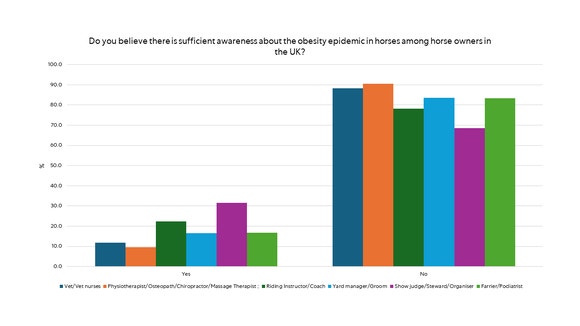
While there is a general agreement on the importance of diet and nutrition in managing obesity, the survey revealed a lack of consensus on the most effective techniques. SPILLERS is committed to addressing this by providing education on balanced calorie intake and preventing nutritional imbalances. Exercise was also deemed ‘extremely important’ but was considered slightly less significant compared to diet, potentially due to limitations in exercise for older or injured horses.
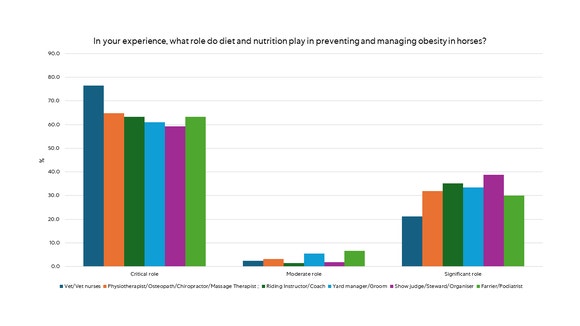
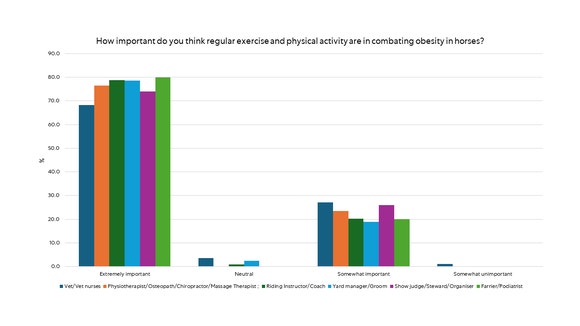
Despite the challenges, 37% of respondents are optimistic about reducing obesity rates in the UK in the coming years, while 31% remain neutral. However, 25% are pessimistic about this goal. The disparity in outlook varies across professions, with show judges generally more optimistic than farriers, who were the most pessimistic group.
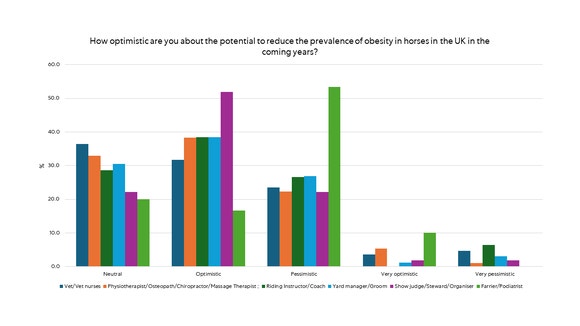
SPILLERS' Next Steps:
The insights from this survey are instrumental in guiding SPILLERS' future initiatives. Bella Fricker, Project Lead at Mars Horsecare, emphasises the importance of this data: “The survey has given us valuable knowledge from industry professionals on how they and their clients perceive the problem of obesity. With better clarity about how positive changes can be made, we hope to move forward with new educational projects to support horse owners and industry professionals in recognition, management, and prevention. Our ultimate goal is to banish equine obesity for good, and we are confident that by working together, we can achieve meaningful change.”
SPILLERS will continue to leverage these findings to enhance its educational programs and practical support systems, including the SPILLERS Slimmers’ Club. This initiative remains a cornerstone of our efforts, offering invaluable resources and community support to help horse owners navigate the challenges of managing overweight horses and ponies.
31st July 2024
